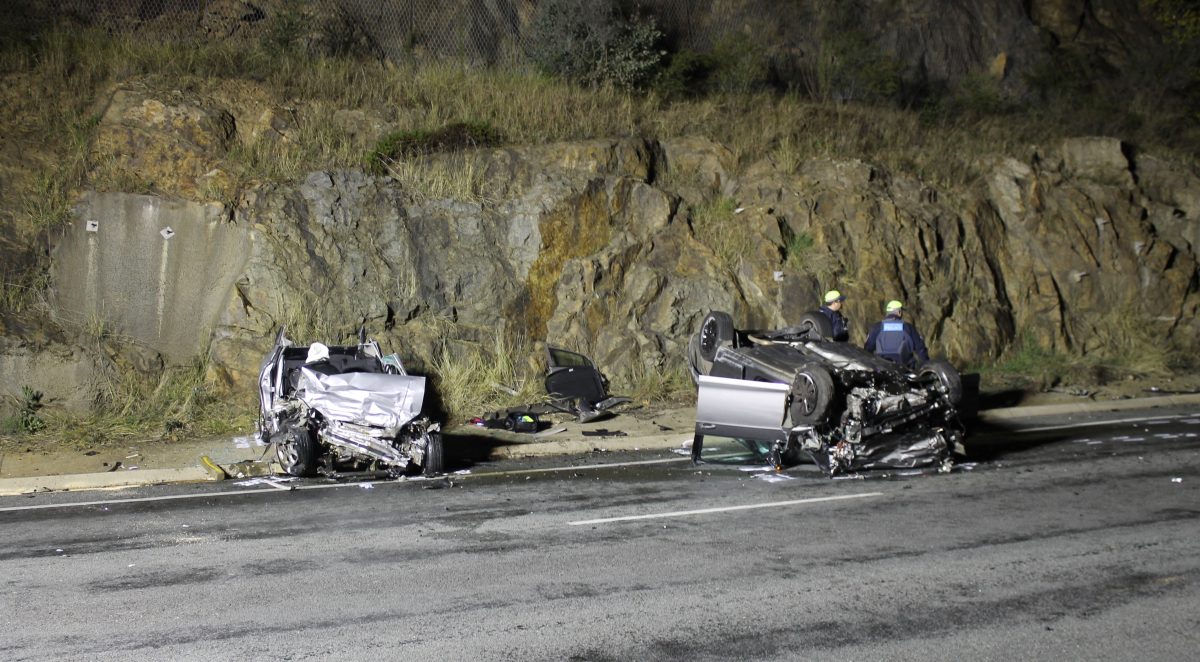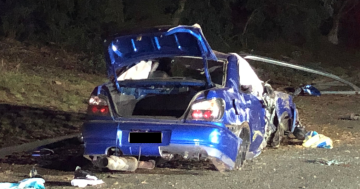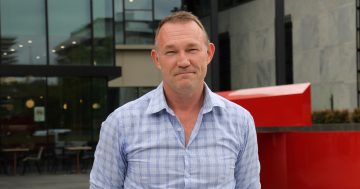
The fatal head-on crash on Hindmarsh Drive. Photo: ACT Policing.
Horse racing is on the nose in the ACT, according to last week’s poll, where most readers thought the sport had lost its social licence.
The ACT Government currently provides millions of dollars in subsidies to the industry under a memorandum of understanding (MoU) with the Canberra Racing Club and the Harness Racing Club.
A new deal would be worth $40 million over five years, or an annual contribution of around $7.5 million from the public purse, but the Greens have refused to sign up to the industry MoU before the Assembly.
Astrid Smith wrote: “ACT racing, unlike NSW racing, actually puts money back into government coffers. It also does bring [economic activity] into the ACT as well when visitors come to watch their horses run.”
James Daniels noted that Greens were “ignoring the likelihood that the industry ceases operating in the ACT and moves over the border like the greyhounds”.
“In that case, the ACT Government would lose twice as much in revenue as it pays out in support.”
We asked: Do you think the ACT taxpayer should support the horse racing industry? A total of 1525 readers voted.
Your choices were to vote No, the social licence has run out for racing. This received 74 per cent of the total or 1128 votes. Alternatively, you could vote Yes, it’s fun and benefits the economy. This received 26 per cent of the total, or 397 votes.
This week, we’re wondering what you think about tougher road rules.
Tom McLuckie, whose son Matthew was tragically killed by a speeding driver on the wrong side of the road, is campaigning for tougher penalties for serious motor vehicle offences in the Territory.
It’s believed the car that smashed into Matt’s was taking part in a street race. Police are still searching for a third vehicle and its driver.
Mr McLuckie wants mandatory minimum sentencing with no parole for serious motor vehicle crime and loss of licence and impounding of motor vehicles for excessive speeding and other reckless driving. ACT Policing says more than 1100 criminal charges were laid in the past two-and-a-half years for serious driving offences.
“There should be scope within ACT law for police to lay charges that reflect the gravity of the crime and for courts to impose penalties that act as a deterrent and go some way to satisfying the needs of victims,” Ian Bushnell wrote.
“But Mr McLuckie’s calls for mandatory minimum sentencing with no parole for certain offences need to be treated with caution as they remove the discretion of judges, lead to overcrowded jails, and limit incentives for rehabilitation.”
Some readers agreed.
“The ACT’s roads are significantly safer than NSW’s without arbitrary performative laws that often impose penalties that are massively out of proportion with the offence,” knight37 wrote.
“Hoon laws contribute relatively little to safety because aside from only catching a small proportion of offenders even when heavily enforced like in Victoria. Most deaths and serious injuries are not caused by hooning.”
But another reader said: “There’s a big difference between someone in a vehicle causing a death or serious injury, because they make a mistake or have a concentration failure, and a conceited ignoramus who just wants to use a suburban street/road as their very own race track.”
Our question this week is:


















